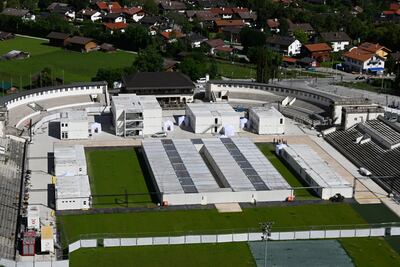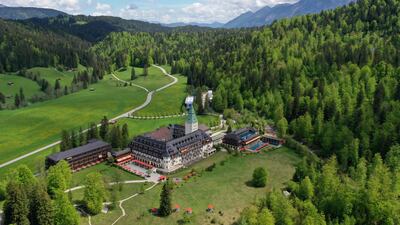Germany has suspended free movement at its borders for three weeks starting on Monday to avert threats to this month’s G7 summit.
Police have powers to stop passengers at Germany’s nine land borders as Schengen free travel rules are temporarily stopped.
The aim is to “prevent the arrival of potential violent criminals” as some of the world’s most powerful people travel to Germany, the interior ministry said.
About 18,000 police will be deployed to protect leaders including US President Joe Biden and French President Emmanuel Macron when they assemble at a castle in the Bavarian Alps from June 26-28. Police have set up camp in what was the skiing venue for the 1936 Winter Olympics in Garmisch-Partenkirchen.
Protests are expected during the three-day gathering, and Bavarian police say security services are monitoring “attempts to mobilise” by left and right-wing extremists.
There were minor clashes between police and protesters when the same venue, Schloss Elmau, hosted leaders including Angela Merkel and Barack Obama during Germany’s last turn at the G7 presidency in 2015.
Two years later there was more serious street violence at a G20 summit in Hamburg, where German Chancellor Olaf Scholz was mayor at the time and was criticised over the chaos.

Climate activists and left-wing groups have called a mass demonstration in Munich, the nearest major city to Schloss Elmau, the day before this year’s summit begins and are hoping for tens of thousands to take part.
Border checks will only take place at certain times and locations but passengers should expect disruption to cross-border traffic, the interior ministry said.
Thomas Haldenwang, the head of Germany’s domestic intelligence service, said last week that his agency was working with colleagues in other countries to avert threats to the G7.
Schengen rules allow countries to temporarily bring in border checks if there is a “serious threat to public policy or internal security”.
This was invoked by members of the European Union during the coronavirus pandemic, but also due to other threats such as terrorism and organised crime.
EU law says the checks should be a last resort and kept to a “bare minimum”. Germany’s special rules will last until July 3.


